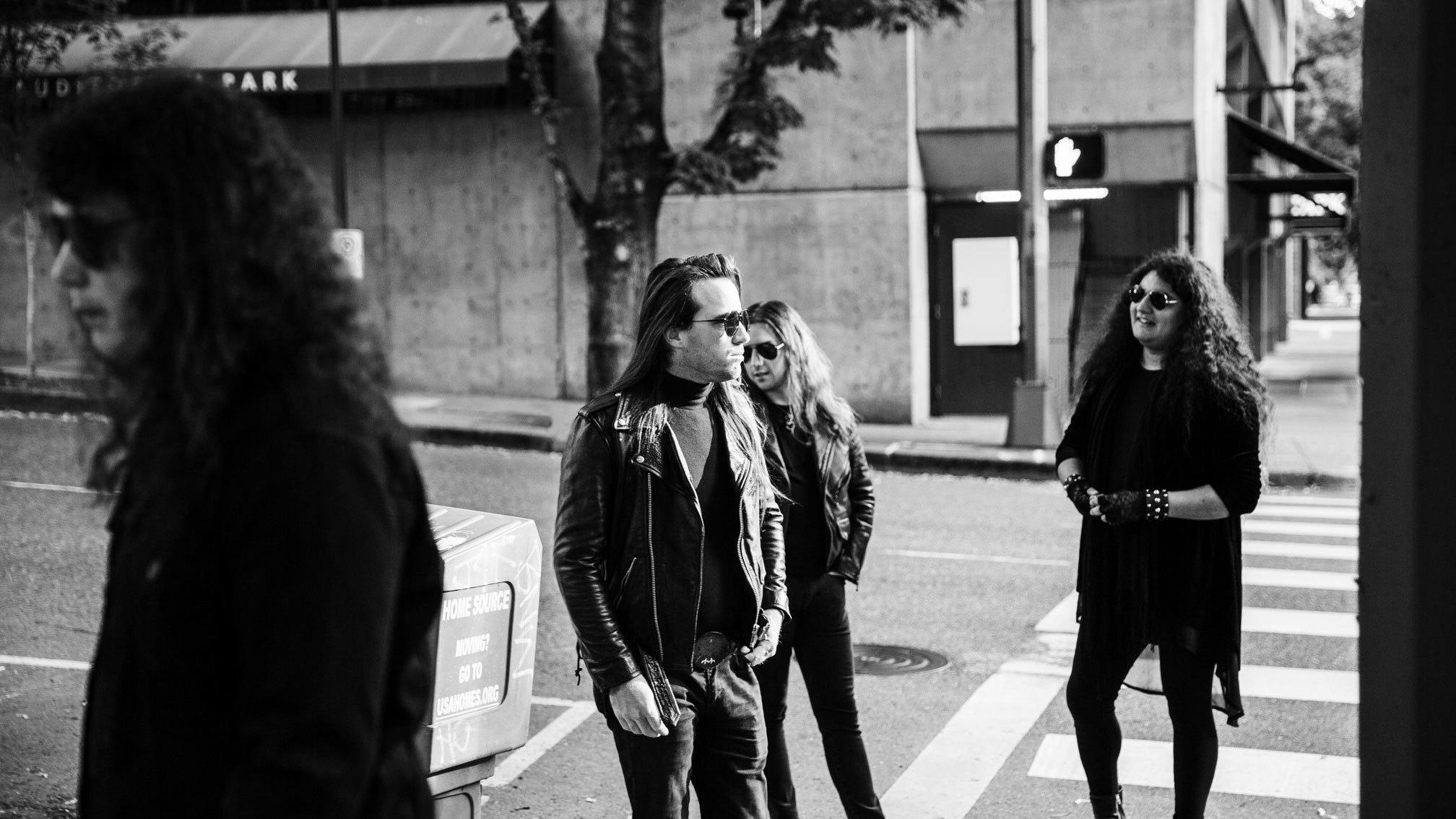It’s hardly coincidental that the titles to Idle Hands / Unto Others’ first two albums – 2019’s Mana and 2021’s Strength – refer to essentially the same thing: energy; power; fortitude. Gabe smiles at our observation, initially deflecting with the admission that he’s inspired by videogame-centric geek-speak, but it’s undeniable that his music is a potent distillation of what it means to stare – perhaps even lean over – into the void, and to refuse to be consumed by it.
“Sitting at home, coming up with all this shit, it felt like I was writing in the dark a lot. ‘Okay, here’s the song. But when am I going to release it?’ Planning things a year out is just depressing. When people were saying ‘Okay, next fall…’ I was thinking, ‘Man, I’m not immortal!’ Next year isn’t how I operate. If there’s something I want to do, I do it as soon as prudently possible. I never really sat there saying, ‘I need some strength’ or, ‘I need some help’. That’s not necessarily what the album is about. It was accidental, or maybe subconscious. I don’t know if it was so much that we needed strength, but we ended up with it…”
Indeed, Gabe isn’t keen to dwell on the subtext.
Where their original moniker hinted at devilish playfulness, the words ‘Unto Others’ land with more biblical weight, and an unavoidable implication that scales must be balanced, and justice must be done. Where ‘Idle Hands’ was taken from 2019 track Blade And The Will (‘My idle hands hold on…’), Unto Others is lifted from those for No Children Laughing Now (‘And do unto others / As they have done to me…’). The singer refuses to be drawn on the matter, allowing the cultural and religious weight of the phrase speak for itself. “There’s no definitive message I’m trying to send. You could take it as the golden rule: ‘Do unto other as you would have them do unto you…’ or you could say it as vengeful ‘Do unto others as they have done do unto you.’ Really, it’s about that question of whether you’re going to help or hurt people with your power.”
Likewise, looking at Adam Burke’s striking album artwork – a black horse against a dark backdrop – there’s no clarification on whether the steed is a representation of Famine from the Book Of Revelation, or a nod to the band’s status as surging underdogs about to elevate themselves from the underground. “They’re just such majestic animals,” Gabe shrugs. “And there’s something interesting about how they’ve been domesticated to the Nth degree and effectively had their freedom taken away from them.”
That stubborn ambiguity doesn’t quite extend into the lyrical content of the songs themselves. Tracks like Double Negative, Heroin and the aforementioned No Children Laughing Now clearly envisage scenarios of suicide, addiction and even school shootings.
Refusing to dispute that his subject matter takes in darkness for darkness’ sake, the frontman confesses that a pitch-black sense of humour is at the heart of all he does, while making a compelling argument that his decision to tap into the emotional potency of life’s sadness, suffering and squalor doesn’t need to be dissected or justified. Dark-sided explorations of suicidal ideation, for instance, have become unjustifiably taboo in music. “It’s just another extreme of our reality,” he explains. “It deserves its place in music. It’s something that happens all the time in movies and plays going all the way back to Shakespeare. But when you throw that into a song it gets so much more critically analysed.”
So, this midnight music isn’t supposed to be dark and oppressive?
“I think that our music is inspiring, to be honest,” Gabe counters. “My number one goal is to try and get people to feel goosebumps. If that happens, then I’m doing my job. This music only seems miserable to those who can’t see beyond the surface. There’s a much deeper message there. If you can find it and connect with it, this music will inspire you, not make you sad. People think listening to music like ours is this dark thing where you’re just depressed all the time and you hate everything. That’s not why I listen to it. I listen to it because there’s somebody else out there who feels the same way I do. It’s about having the courage to acknowledge that bad things happen, but that’s okay. Our fans are generally intelligent enough to understand the deeper meaning behind this stuff. They’re not taking it at face value.”
A wry grin.
“Though I did come across one guy on Facebook who’d decided, ‘This is garbage music for lowlives!’”
